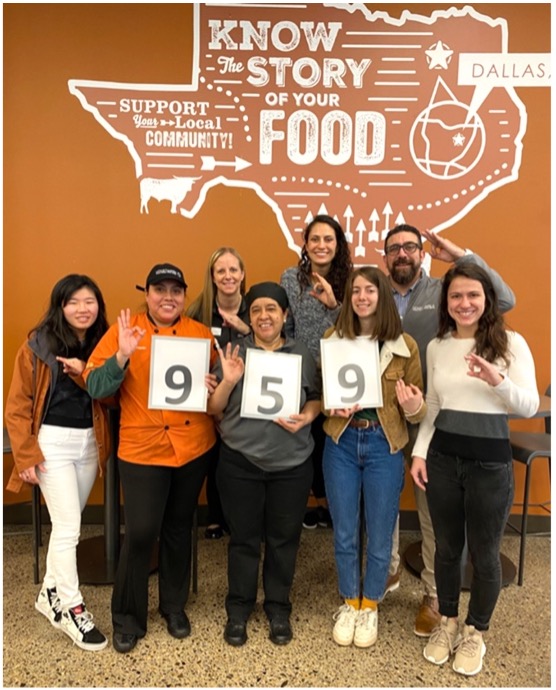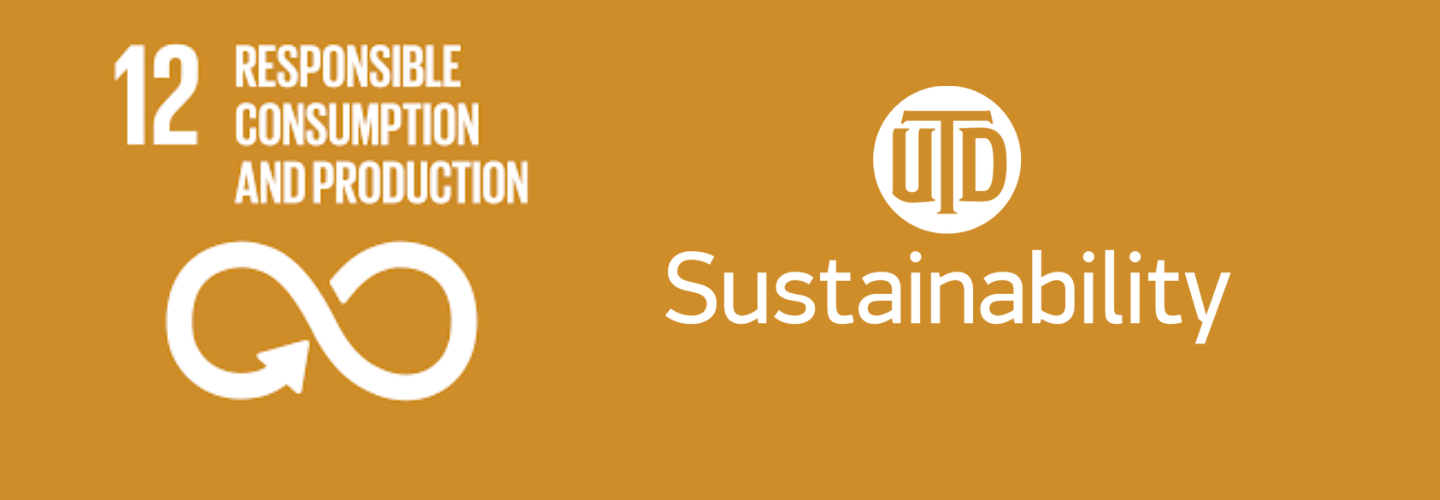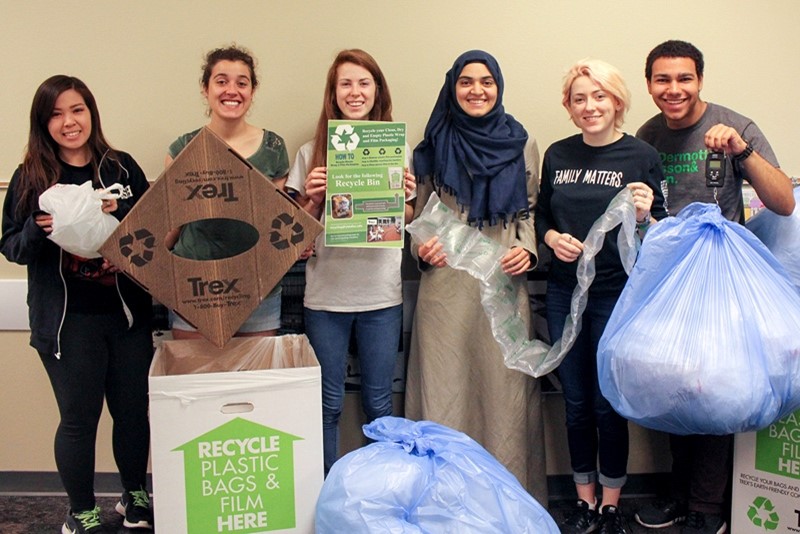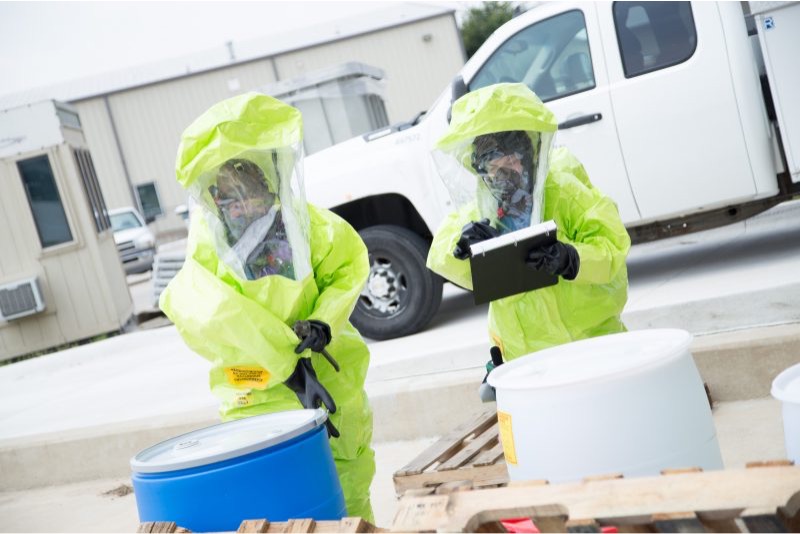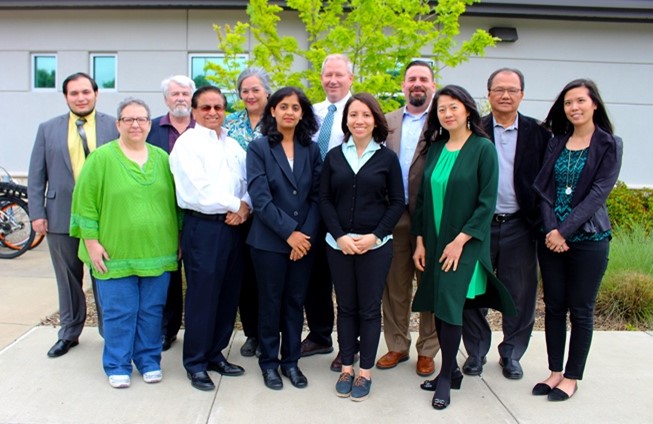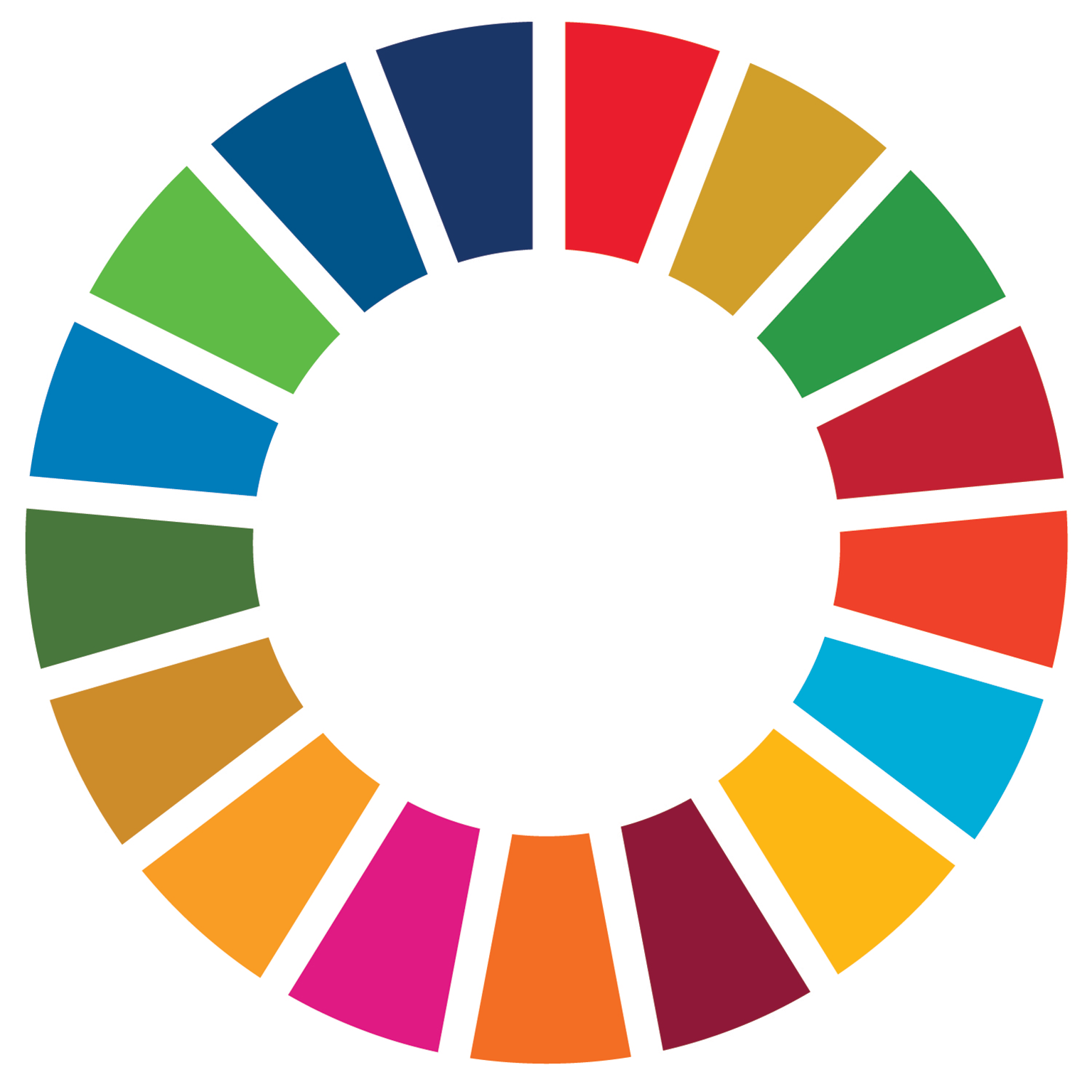Sustainable Dining & Food Waste Reduction
SDG 1: No Poverty
SDG 2: Zero Hunger
Composting is an important part of the campus waste management program that is
continuously evolving. Pre-Consumer food waste contributions began in 2011 in partnership
with Dining Services and Facilities Management. In August 2017, a partnership with
Organix Recycling formed and enhanced the overall composting program at UT Dallas.
With the transition, specialized compost containers were installed near kitchen locations,
therefore simplifying the pre-consumer food waste collection process. With this new
partnership, additional food items became acceptable in the waste stream that were not
previously accepted (for example, meat and dairy products), increasing the
amount of food waste that is recycled. As of current, Dining Services, in partnership
with Turn Compost, has taken the lead and moved to all food waste collections in
Dining Hall West.
The University of Texas at Dallas has evolved its composting program from
previously targeting only landscape waste, to including pre and post-consumer food waste,
and now to providing students, staff, and faculty the opportunity to compost on-campus.
Since 2012, UT Dallas has composted over 500,000 lbs. of food waste, therefore
diverting 81 metric tonnes of CO2 from the atmosphere campus-wide. Since expanding the
compost program into Housing in September 2018, over 11,000 lbs. of food waste has been
composted from on-campus resident participants.
Composting has been on the mind of students for many years. In fall 2018, the
UT Dallas Student Government Green Initiative Committee took the lead and
collaborated with The Office of Sustainability within Facilities Management, Housing,
and Organix Recycling to make the composting program accessible to residents of
University Village and Canyon Creek Apartments. In order to participate in the program,
residents must attend a compost training. At the training, residents will learn what
goes in the compost containers, how to manage individualized food collection caddies,
and acquire a combination for the lock securing the containers. Beginning in 2022, the
Office of Sustainability began a partnership with Turn Compost, and compost drop-off
stations were expanded from three to eleven locations, including expanded service to
Northside apartments, residence halls, and the campus core.
Specialty Recycling Programs & Recycling Locator
SDG 3: Good Health and Well-Being
SDG 13: Climate Action
Recycling is a key aspect for reducing our environmental impact at UT Dallas.
Recycle bins are located on the interior and exterior of buildings across campus.
UT Dallas operates a single-stream recycling program. This means you can place
cardboard, paper, aluminum cans, metal cans, plastics (1-5 and 7), and
unbroken glass bottles in a recycling bin. Specialty recycling streams include batteries,
cardboard, clothing and shoes, confidential paper shredding, electronics, metal,
nitrile gloves, plastic wrap, printer cartridges and toner.
Read more about Recycling at UT Dallas.
Check out our Specialty Recycling Locator.
Sustainable Purchasing
SDG 8: Decent Work and Economic Growth
SDG 15: Life on Land
The University of Texas at Dallas is comprised of numerous departments
and offices. Throughout the workday, paper is a high use product in producing reports,
plans, programs, and many other uses. To reduce the overall cost of paper purchasing,
The Office of Sustainability recommends evaluating the feasibility of utilizing digital
documents and shared drives when practical and possible. If this is not possible,
please consider purchasing post-consumer recycled office paper. In FY21, 17% of
paper purchased by the university contained at least 10% recycled content. Most
office supply retailer’s offer recycled paper products. In the Electronics Purchasing
area, 38% of University electronic products purchased in FY21 are EPEAT gold registered.
Additionally, 33% of janitorial cleaning products and 99% of janitorial paper
products are certified with a “green” certification approved by the
Association for the Advancement of Sustainability in Higher Education. The University-wide
Sustainability Committee at UT Dallas is also currently developing a plan to reduce
single use plastic purchasing and usage on campus. In coming years, the Office of
Sustainability hopes to take further action in sustainable purchasing.
Hazardous Waste Management
SDG 3: Good Health and Well-Being
SDG 15: Life on Land
A campus-wide Pollution Prevention Plan is in place that covers several initiatives
for source reduction and waste minimization (SRR/WM) on campus, including:
- Tracking waste generated and disposal costs by source to help focus waste
minimization activities. The majority of these waste types are generated by
laboratories, therefore; a large effort is made to work closely with them. This
includes a training system for labs encouraging these SW/WM activities, some
of which are detailed below.
- Campus-wide recycling efforts, including for facilities buildings and campus
apartments. This includes the ongoing project of switching from fluorescent lamps to
LED [Light Emitting Diode]
to reduce toxicity of waste and frequency of replacement.
- All laboratory chemical orders must be reviewed by UT Dallas’ Chemical
Safety team through UT Dallas’ procurement system. This has caught
mistakes in ordering (ex. 200 liters ordered versus the intended 20 liters),
resulting in less unused chemicals and safer storage conditions on campus. It also
alerts the hazardous waste team of any new potential wastes to be generated on campus.
- UT Dallas also utilizes a Chemical Inventory System
(CIS [Chemical Inventory System] ),
which inventories and tracks all hazardous chemicals in laboratories. This allows
lab members to easily find chemicals that are needed and share chemicals, if needed
in small amounts, reducing the chemicals coming onto campus.
- UT Dallas also has a program to track certain chemicals of concern, which
degrade with age. Quarterly, a report containing “expiring” chemicals
is managed by the Chemical Safety team and communicated to the relevant labs.
This program encourages the chemicals to be used before expiration or increased
hazard, reducing the waste generated.
- The UT Dallas also has an Institutional Biosafety and Chemical Safety Committee
(IBCC [Institutional Biosafety and Chemical Safety Committee] ),
which reviews the need and subsequent safe management of particularly hazardous
chemicals. This helps address the actual need for certain chemicals to reduce
particularly hazardous chemicals on campus.
Landscape Management & Construction Waste Diversion
SDG 11: Sustainable Cities and Communities
SDG 15: Life on Land
At UT Dallas, the collected landscape waste materials are integrated into the
campus composting operations. Small and medium sized tree limbs are placed in a brush
pile where they are eventually shredded down to be composted.
